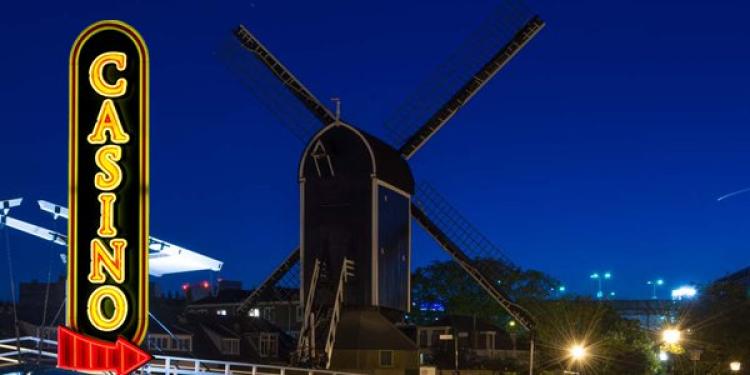The Netherlands Move Forward to Pass New Dutch Gambling Laws
Posted: July 28, 2014
Updated: October 4, 2017

The Dutch regulatory body believes new online gambling licenses will not be handed out before June 1, 2015.
The never-ending story of legalizing internet gambling in the Netherlands is well known to online casino operators. Despite officials repeatedly promising to liberalize the market by January 1, 2015, progress has been slow.
Now authorities are one step closer to an open and regulated online casino market, after the local government presented the Dutch Remote Gaming Bill to the House of Representatives last week. The bill is yet to be debated and should then proceed to the Senate. If everything goes according to plan, officials might just make the deadline.
Even so, the state’s gaming authority says it will be another 6 months before it can issue the first online casino license.
Gambling in the Netherlands
At present, the government has strict control over gambling in the Netherlands. Holland Casino has monopoly over all land-based casinos and it has been this way since the mid 70’s, when the first gambling venue opened in Zandvoort. So far, the government has been very strict about maintaining the monopoly and the company now runs a total of 14 casinos across the country.
Online casinos that accept players from the Netherlands:
• Casino UK
• All Slots Casino
• Casinorgy
• Vegas Slot Casino
• Play2Win Casino
Under the current legislation, internet gambling in the Netherlands internet gambling in the Netherlands is illegal. The Dutch government made history when it fined Curacao based Global Stars with EUR 100,000 for operating an online gambling site without a license.
This happened last September, when officials had already announced their intentions of liberalizing the market, but the law is the law and authorities are dead serious about it. After this move, it became clear that foreign based online casinos are not welcome on the Dutch gambling market. At least not until the new regulations come into force.
New Dutch gambling laws by 2015
So far, progress in passing the new Dutch gambling law has been slow. But now that the bill has been introduced to the House of Representatives, the Netherlands are one step closer to having a liberal online casino market. Politicians have yet to debate the merits of the bill, and unfortunately this won’t happen until in September. But if this stage goes well, the bill can be sent to the Senate for final approval.
While officials expect the deadline for the final passage to be met, Jan Suvyer, chairman of gaming regulator Kansspelautoriteit (KSA), says the first online gambling licenses might not be issued until the second quarter of next year. Under these circumstances, the market will not officially launch before June 1.
However, some industry experts worry that the debate over the new bill will be delayed, considering that it has already come under fire from the Dutch Council of State. Council members have questions the government’s projections that the new regulations will make 80% of Dutch players switch from foreign to local operators.
Online sportsbooks going local
Once the new law passes, online operators will be able to cater to local players without risking a fine, but only if they have a Dutch license. In order to obtain one, they have to be registered in the European Union or in a country that is part of the European Economic Area. They must also be willing to store copies of their online information in a database somewhere in the Netherlands.
Any international gambling companies that continue to cater to local players without a license will be punished. The government has set clear enforcement mechanisms to be applied by the KSA – including blocking payment to unlicensed operators – and added that it will further extend these measures, once the law comes into force.
So far, the KSA has done a good job enforcing the law. During the 2014 FIFA World Cup, the authority sent out warning letters to eight online operators, reminding them that their chances of obtaining a license under the new law will reduce significantly if they keep allowing locals to illegally use their services to bet on sports in the Netherlands.
Preferential tax rate
While the process of passing the new law moves further, the Council of State has one more concern. It asked officials why online operators are given a preferential tax rate of 20% of gross gaming revenue, compared to the 29% tax applied to land-based casinos.
Meanwhile, local online gambling advocacy body Speel Verantwoord considers the tax rate to be too high and has protested against it. The group says having to pay 20% to the state will discourage companies from applying for a Dutch license.
The advocacy body suggested a 10% tax rate instead, adding that this will allow local operators to offer competitive products. The group believes this will have a positive effect on local players too, who are more likely to choose a Dutch-licensed company, if their services are better. Speel Verantwoord estimated the 20% tax will only achieve a 70% adoption rate at best.












